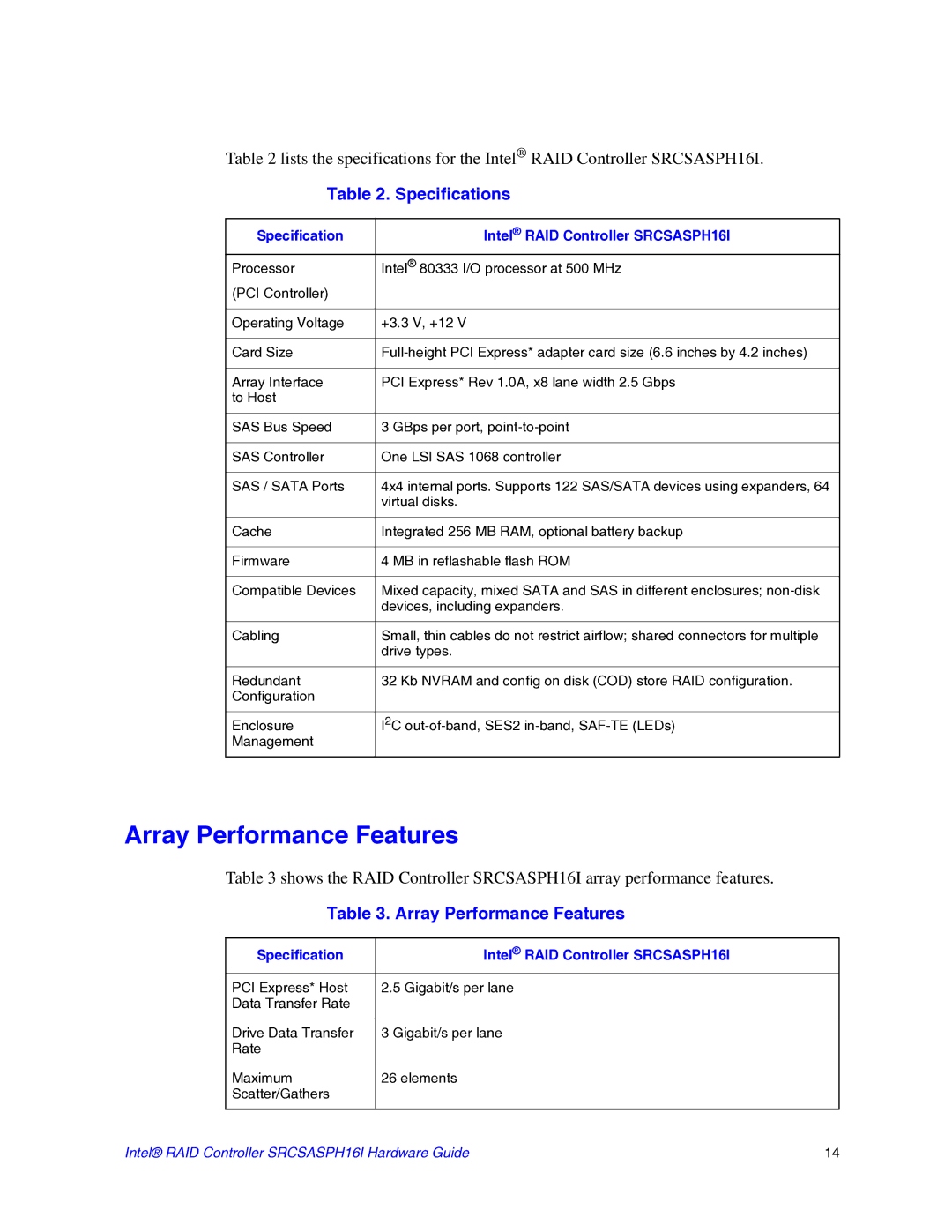SRCSASPH16I specifications
The Intel SRCSASPH16I is a powerful and versatile RAID (Redundant Array of Independent Disks) controller designed specifically for enterprise environments. Offering robust performance and high data protection capabilities, it is ideal for server applications requiring reliable storage solutions. This card is particularly well-suited for those who demand enhanced I/O performance and fault tolerance.One of the main features of the SRCSASPH16I is its support for SAS (Serial Attached SCSI) and SATA (Serial ATA) drives. This dual compatibility allows users to leverage both high-performance SAS drives and cost-effective SATA drives, providing flexibility in storage configurations. It supports up to 16 devices, enabling the creation of extensive storage arrays suitable for handling large volumes of data.
The SRCSASPH16I utilizes a high-speed PCIe (Peripheral Component Interconnect Express) interface, ensuring minimal latency and maximum throughput. This is crucial in environments where data access speeds are critical, such as database management systems or virtualized environments. With a throughput capability of up to 6 Gbps per port, users can expect efficient data transfer rates for demanding workloads.
Another notable characteristic of the Intel SRCSASPH16I is its sophisticated RAID support. It offers a variety of RAID levels, including RAID 0, 1, 5, 6, 10, 50, and 60, allowing for customizable levels of data redundancy and performance. This flexibility enables administrators to tailor their storage solutions according to specific application needs, whether prioritizing performance, redundancy, or a balance of both.
The controller features advanced management tools, including Intel’s RAID Web Console, which provides a user-friendly interface for monitoring performance, configuring RAID arrays, and managing storage devices. This reduces administrative overhead and helps ensure optimal performance through proactive monitoring.
Additionally, the SRCSASPH16I supports various technologies to enhance reliability and performance. It includes features like hot-swappable drives, which allow for the replacement of failed drives without downtime, and battery-backed write cache (BBWC) that preserves data during power outages to prevent data loss.
In summary, the Intel SRCSASPH16I is a high-performance, feature-rich RAID controller that meets the demands of modern enterprise environments. With its dual compatibility for SAS and SATA, advanced RAID capabilities, robust management tools, and focus on reliability, it is an excellent choice for businesses looking to optimize their storage infrastructure while ensuring data integrity.
